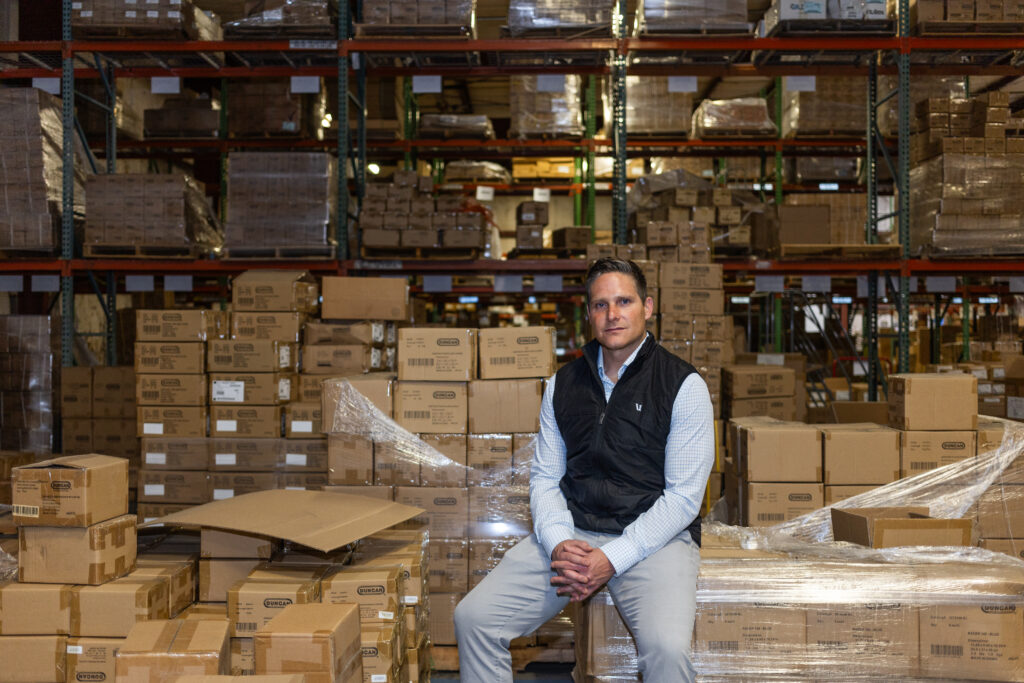Josh Staph fears the fun-packed shelves of his toy warehouse might start looking joyless in the months ahead, with made-in-China flying discs and model gliders grounded -– like much of his product line –- by Donald Trump’s tariffs.”Things have ground to a halt,” said Staph, chief executive of Duncan Toys Company, which has a warehouse in Indiana. With his products now facing a steep 145 percent levy, “we stopped shipping goods into the US,” he added.Nearly 100 days into President Donald Trump’s White House return, US businesses are scrambling to adjust to fast-changing trade policies.The $40 billion toy industry, which heavily relies on production in China, is hard hit, companies tell AFP.Of over $17 billion worth of toys imported to the US last year, more than $13 billion came from China.Duncan’s entire product range is designed and developed in the United States, Staph said, but Chinese factories make almost all the toys.Firms there have developed specialized abilities to produce intricate parts for items like its best-selling yo-yos.Most American toy companies have halted shipments since Trump imposed new tariffs on many products from China this year, Staph said.The move raised the duty that US firms pay when they import any Chinese-made toys — from plushies to action figures — from zero to 145 percent, more than doubling import costs.”It’s pretty debilitating,” Staph added. “As a business leader, after 100 days of the administration, I’d say that the most challenging part is the uncertainty.” “It’s tough to build any sort of strategy and go for a plan when we know that things are changing almost on a daily basis.”- ‘Tariff surcharges’ -Rita Pin Ahrens, who runs three toy stores including one in Washington, started receiving “tariff surcharges” of 15 percent to 25 percent in March. She expects them to mount to 145 percent.Many of the thousands of toys she sells are either imported from places like China, or are partially made in the world’s second biggest economy.Still, she said: “We’re trying to minimize the cost to our consumers.”This has meant holding off purchases that become too pricey or stocking up before tariffs kicked in. And shipment delays have already begun.”It has been a complete nightmare,” she said. “I am really, truly worried about whether we can actually sustain the store.”Many US brands are small businesses with limited cashflow, said Greg Ahearn, chief executive of industry group The Toy Association.They struggle to pay sudden tariffs on containers of toys that may have already been manufactured.Meanwhile, “production of toys has all but stopped in China,” he said.- ‘Difficult Christmas’ -Staph of Duncan Toys said inventory to supply US retailers like Target and Walmart through year-end holidays has not entered the country yet.Typically, toys produced in spring arrive over the summer for shipping in the fall as stores prepare for the holiday shopping boom, with around 90 percent of stock coming from overseas.”If this isn’t cleared up in 30 to 60 days, it’s going to be a really difficult Christmas season with empty shelves in a lot of major retailers,” Staph warned.And if tariffs remain in force, “the pricing of those toys that are even available will probably be twice, if not more, the price they were last year,” said Ahearn of The Toy Association.While the United States makes some toys, many products require hand labor and it will take years to grow the US manufacturing base, Ahearn believes.The injection molding process used to produce many items requires extremely large, heavy tools that cannot be moved and must be installed from scratch.Companies were ready to work around Trump’s 10 percent additional tariff on Chinese imports, imposed in February over China’s alleged role in the fentanyl supply chain.But in March, Trump raised the level to 20 percent. In April, the figure exploded to 145 percent.Staph hopes the toy industry can gain exemptions, noting that Trump has begun targeting specific industries.”Toys are important for children’s development,” Ahrens said, noting that toys were excluded from tariffs during Trump’s first administration.”I really urge the president to do that again.”
